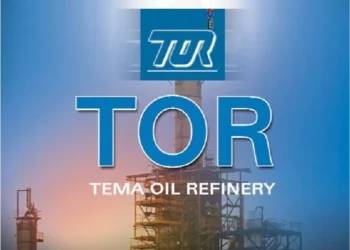Loopholes in Petroleum Revenue Management Act (PRMA) have shrank the enormous potential in the performance of petroleum revenues generated over the last decade, since Ghana began the commercial production of oil.
Despite the fact that the existence of the PRMA has contributed to an overall improvement in the sector’s performance in terms of governance, it still lags in certain vital areas. As a result, these undermine the potential for robust revenue generation and implementation strategy of the sector.
In the last decade, these issues have become perennial. They span areas of the PRMA including: the management and utilization of the ABFA; revenue collection; management and utilization of the Ghana Petroleum Funds and implementation issues.
According to the Public Interest and Accountability Committee (PIAC), petroleum revenues accumulated over the last decade amounted to US$6.55 billion. Out of the US$6.50 billion received from 2011 to 2020, the Ghana National Petroleum Corporation received US$2.01 billion, representing about 30.72 per cent.
Furthermore, the Annual Budget Funding Amount (ABFA) received US$2.56 billion (39.04 per cent), the Ghana Heritage Fund had $0.587 billion (8.97 per cent), while the Ghana Stabilization Fund received US$1.39 billion (21.27 per cent).
Specifically, from 2011-2015, petroleum revenues amounted to US$3.3 billion, according to PIAC. Therefore, this means that over the past five years, petroleum revenues accumulated reached approximately US$3.2 billion (less US$0.1 billion), reflecting a slowdown in expected revenue. Averagely, less than US$1 billon in revenue is made each year, thus indicating low revenue capacity.
Considering this development, it is evident that an arousal of utmost concern among stakeholders, especially the government over the future of oil revenues and the finite nature of the country’s oil resources is needed. Besides, a total of US$6.55 billion as revenue from the country’s oil resources is miniscule and could be improved entering into the new decade.
Capping of Stabilization fund should be amended
To mention a few of these gaps as identified, the Petroleum Revenue Management Act (PRMA), 2011 (Act 815) provides room for a discretionary capping of the Ghana Stabilization Fund (GSF). While the PIAC acknowledges this trend as having continued this long, the required approach and commitment by the government to ensure recommendations are effected have not been adhered to.
Contrary to the PRMA, an unutilized amount of GH¢827.60 million from 2017–2019 was spent to partially meet the shortfall in ABFA receipts caused by the impact of the COVID-19 pandemic and its associated effects on crude oil prices globally.
In 2020, the PIAC report indicated that an amount of US$189.13 million was withdrawn as excess over the cap of US$300 million placed on the GSF. With the lowering of the cap, and subsequent transfer of funds into the sinking fund for debt servicing, these defeat the purpose of the GSF.
Meanwhile, the GSF was rather established to provide budgetary support in times of shortfalls in expected petroleum revenues as prescribed by section 9(2) of the PRMA. Thus, this undermines the strict adherence of the revenue management law.
The PIAC recommended an amendment of the PRMA to remove the ministerial discretion over the GSF cap between Contingency and Sinking funds. In place of these, a prescribed minimum portion of the excess over the cap should mandatorily be disbursed into the Contingency Fund.
Mr. Noble Wadzah, the former PIAC Chairman is on record to have intimated that:
“The law on which PIAC operates is grounded on transparency and accountability. So, providing unyielding opportunity for discretion is at variance to the tenets of transparency and accountability.”
“Clearly, it is an opportunity for corruption risk which we need to address as a country. What is important is to raise the issue and when do, we must have a consensus around it.”
Mr. Noble Wadzah, Former PIAC Chairman
Looking ahead, the future of the country’s oil resources and the revenues generated alongside their performance would be one of the topmost issues to consider. However, one of the factors that would ensure benefits to the country remains at the apex, and which lies in the power of the government, is to ensure the law is adhered to the latter.





















